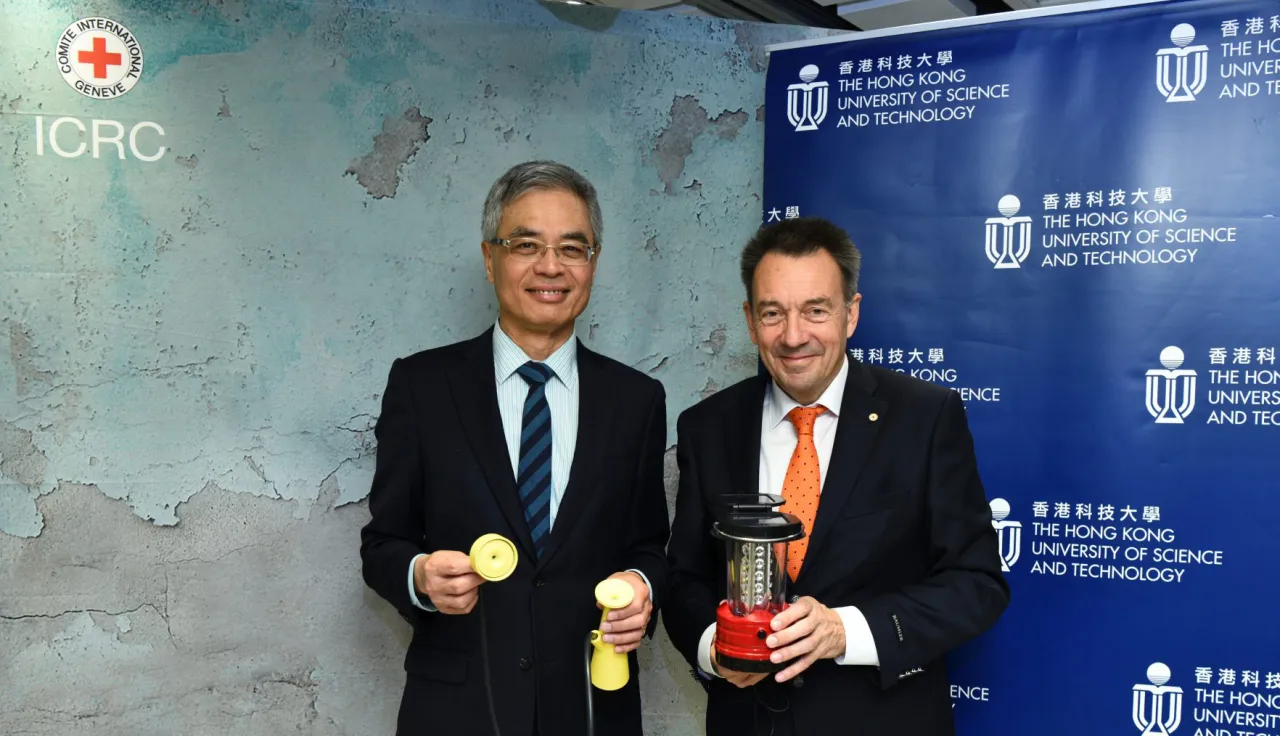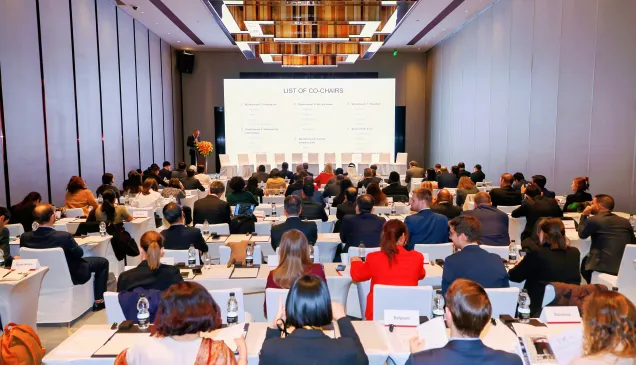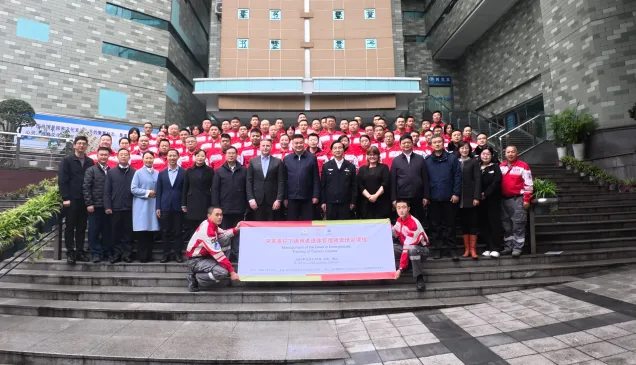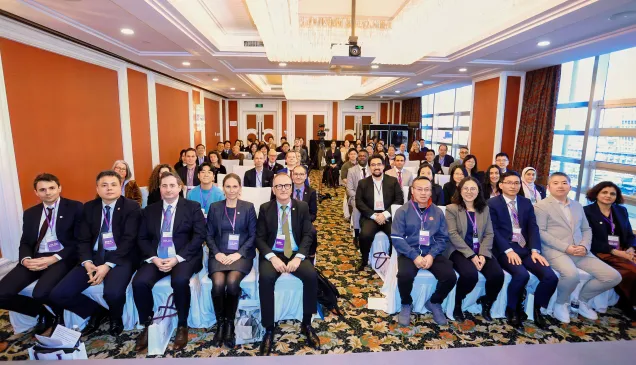The dialogue touched upon issues like the emergence of autonomous weapons, the power of new technologies on humanitarian work, and how Asian youth could make an impact amid Asia's rise in the international arena.
President Peter Maurer of the ICRC and Prof. Wei Shyy, the President of HKUST, were joined by Dr Simon Shen, a high-profile international relations scholar and Prof. Kellee TSAI, the Dean of Humanities and Social Science, as moderator, to further the discussion in a panel setting. They delved into the opportunities and challenges that technology and innovation bring to the humanitarian sector and how Asian youth could play a role in it.
"The governments establishing the limits for autonomous weapon systems need to ensure compliance with international humanitarian law and be firmly rooted in the principles of humanity and the dictates of public conscience," said Mr. Maurer. He was addressing an audience of over 350 guests that included government representatives, diplomatic community, faculty professors and students who had gathered in a lecture theatre at HKUST.
To deepen the understanding about international humanitarian work, a three-day exhibition was organized on the campus, showcasing innovations used or developed by the ICRC to help victims of armed conflict or for people who work in harsh settings.
The exhibits included a new generation prosthetic knee made to withstand the difficult environment of countries such as Afghanistan and South Sudan. This implant can be easily repaired and facilitates a range of movements like sitting down to offer prayers. Another innovation on display was an inexpensive, easy to operate and powerful solar lamp that provides light without electricity. It was also designed to charge mobile phones – the most empowering tool people have at their disposal during a crisis.
"The humanitarian challenges facing our world are vast. Today, more than 120 million people depend on some form of humanitarian assistance. The ICRC welcomes new partners as we know that a collective effort is needed to alleviate suffering and protect people from the worst of conflict. I believe the HKUST, a top young university in the world with a strong alumni network, can contribute to creating solutions to pressing global challenges," said Mr Maurer.
Giving visitors a "first-hand experience" of a crisis from across the world, the ICRC also displayed the virtual reality equipment that the organization uses to train its staff. The innovation allowed visitors to witness life inside an overcrowded prison, as also how it would feel to cross a road that is under sniper attack and under bombardment. Students from the university were invited to think about the difficulties in developing products for humanitarian work in harsh contexts, and how their skills and university training could be applied to meet humanitarian objectives.
"While it is a common knowledge that new technologies such as Artificial Intelligence and robotics are becoming the new tractors of growth, the associated risks and ethical issues need to be better appreciated." said Prof. Shyy. "I hope the dialogue could help HKUST members to gain new perspective on technological innovation, and offer solutions to address the issues in hand."
Read more: News release on HKUST website
For further information, please contact:
Valery Mbaoh Nana, ICRC Regional Delegation for East Asia, Beijing, tel.: +86 186 0025 3392
Michael Zhang, ICRC Regional Delegation for East Asia, Beijing, tel.: +86 138 1003 5522
To preview and download the latest ICRC video footage in broadcast quality, go to www.icrcvideonewsroom.org
To find out what the ICRC is doing to put an end to attacks on health workers and patients, go to
www.healthcareindanger.orgs
Follow the ICRC on facebook.com/icrc and twitter.com/icrc




